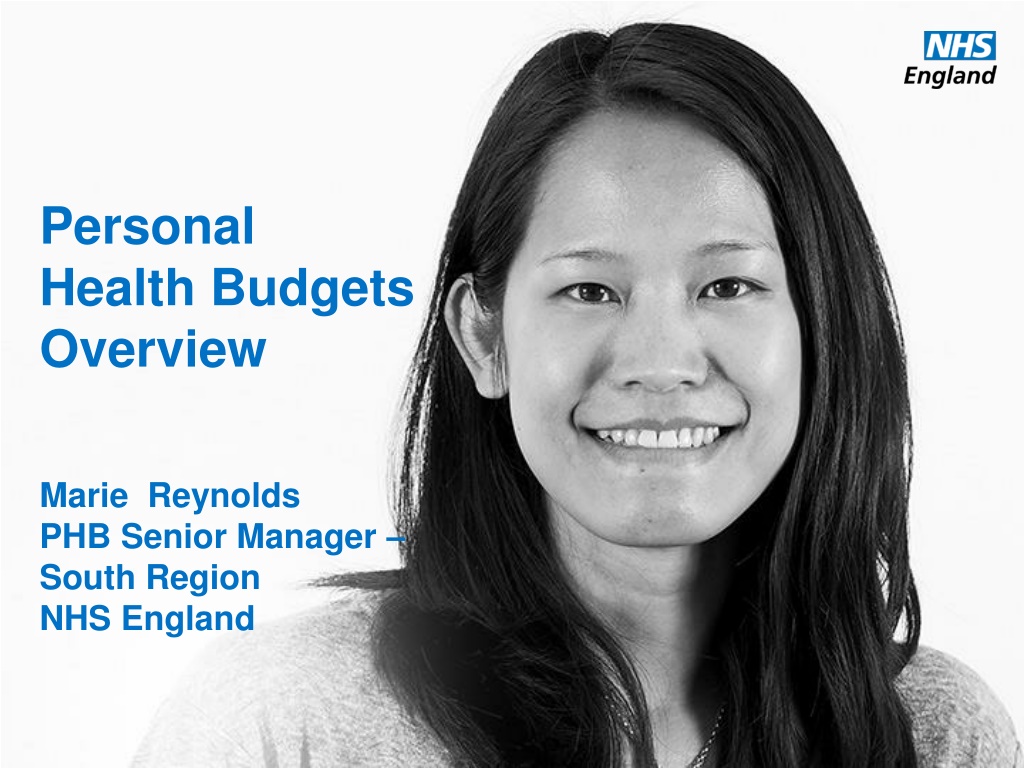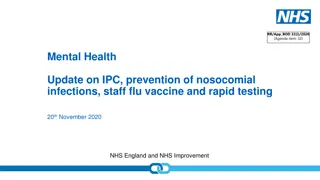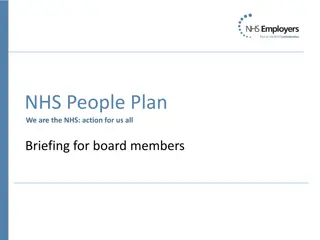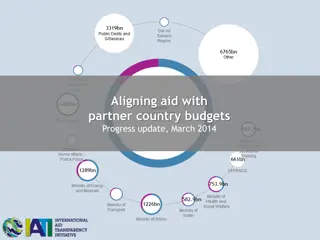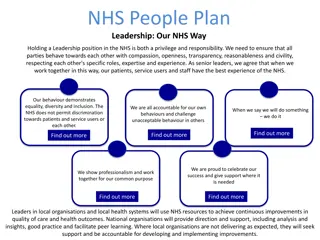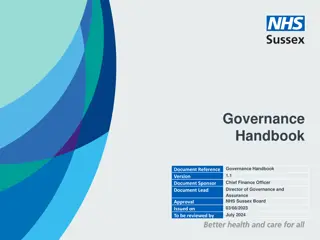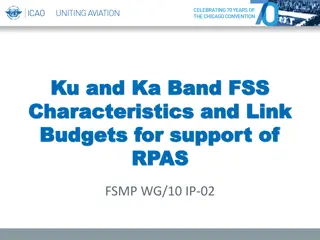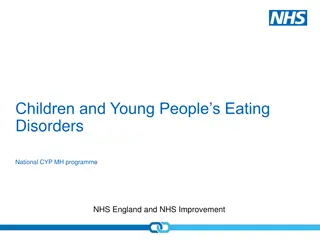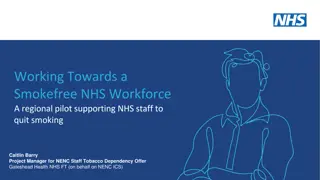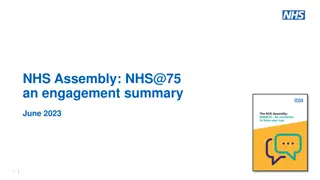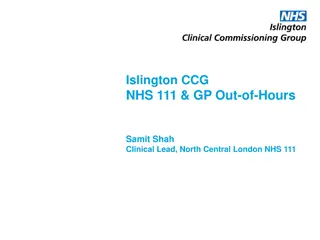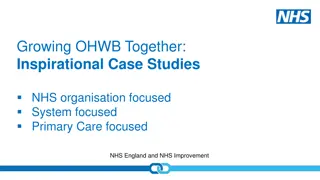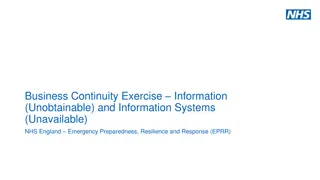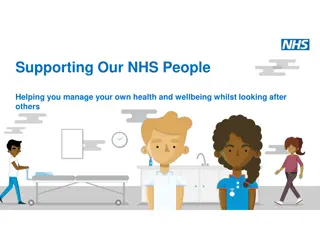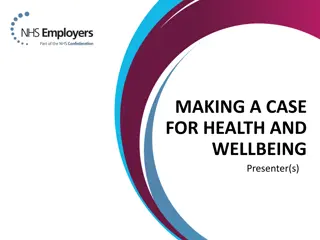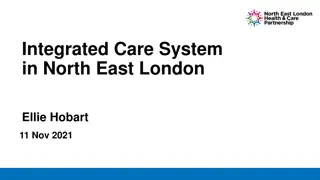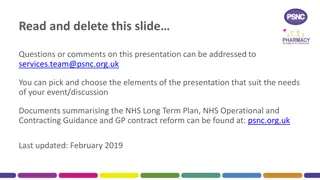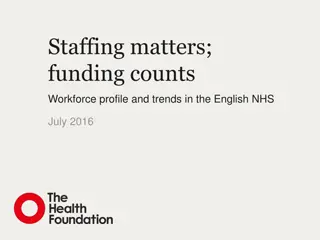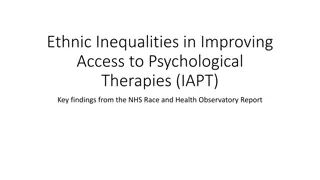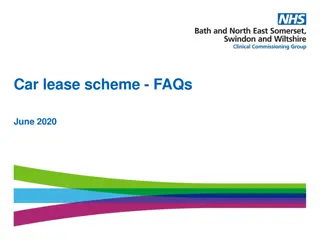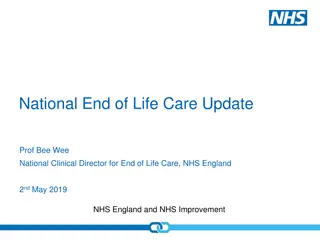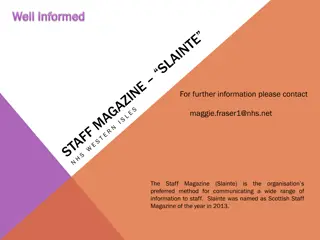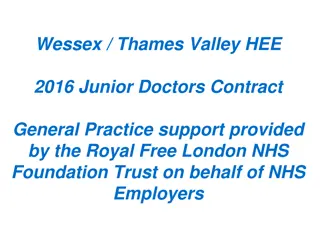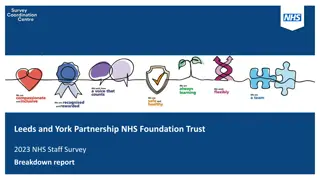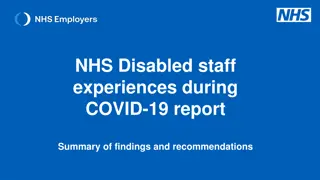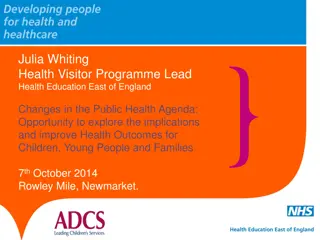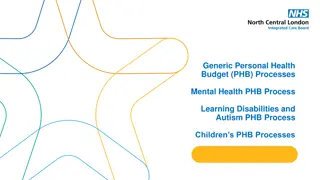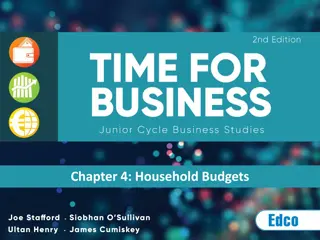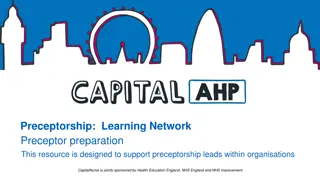Personal Health Budgets Overview in NHS England
Personal Health Budgets (PHBs) are a key part of mainstream NHS services like Continuing Healthcare and Children's Continuing Care. This program allows individuals to choose their health outcomes, know their health care budget, create a personalized care plan, manage their budget, and spend it according to their needs. PHBs aim to improve patient choices and outcomes by empowering individuals and families. The initiative faces challenges due to increasing demand and limited resources in the NHS, but it strives to provide quality care and support to those with long-term conditions.
Download Presentation

Please find below an Image/Link to download the presentation.
The content on the website is provided AS IS for your information and personal use only. It may not be sold, licensed, or shared on other websites without obtaining consent from the author. Download presentation by click this link. If you encounter any issues during the download, it is possible that the publisher has removed the file from their server.
E N D
Presentation Transcript
Personal Health Budgets Overview Marie Reynolds PHB Senior Manager South Region NHS England www.england.nhs.uk
Background & Context www.england.nhs.uk
The Challenges facing the NHS 1. Increasing number of people living with more than one LTC increasing demand on services. 2. Safety Francis, Berwick & Winterbourne. 3. Facing a decade without any increase in spending, unprecedented in NHS history, set against rising demand (4% pressure p/a). www.england.nhs.uk
Personal health budgets are part of mainstream NHS Continuing healthcare: Right to have in NHS continuing healthcare and children s continuing care since October 2014. Children and Families Act 2014: Children who have special educational needs should have a single assessment, an Educational, Health and Care Plan and the option of a personal budget. The NHS Mandate 2015-16: From April 2015, people with long term conditions who could benefit should have the option of a PHB. The NHS Mandate 2016-17: 50-100,000 people to have a PHB or integrated personal budget by 2020 produce a plan with specific milestones for improving patient choice by 2020 particularly in personal health budgets. www.england.nhs.uk
Key features of PHBs www.england.nhs.uk
Five essential parts of a personal health budget The person with the personal health budget (or their representative) will: Be able to choose the health and wellbeing outcomes they want to achieve, in agreement with a health care professional. Know how much money they have for their health care and support. Be enabled to create their own care plan, with support if they want it. Be able to choose how their budget is held and managed, including the right to ask for a direct payment. Be able to spend the money in ways and at times that make sense to them, as agreed in their plan. www.england.nhs.uk
7 www.england.nhs.uk
Personal health budgets Accelerated development www.england.nhs.uk
What is excluded? GP services (GP contract). Acute unplanned care (including A&E). Surgical procedures. Medication. NHS charges e.g. prescription charges. Vaccination/immunisation. Screening. Gambling, debt repayment, alcohol, tobacco. www.england.nhs.uk 9
What can they be spent on? Anything agreed in a care plan which will meet health and wellbeing outcomes, for example Equipment. Personal care. Physiotherapy. Complementary therapies. Supportive technology (e.g. computers, iPads, Kindles). Services should be appropriate for the state to provide. www.england.nhs.uk 10
What needs to be different? One person at a time: supporting people to live in their own home or family home at same cost or less than conventional services Outcome-based: focus on what matters to the person and their family, build on people s assets and interests Whole-life, whole family approach: housing, education, employment, leisure and interests, not just health and care needs Joined-up collaboration across organisations, transition from children to adult services, and between social care and health Tailor-made solutions: Direct payments, individual service funds/third party budgets, equipment, support from hand-picked, well-trained people Risk enablement: thinking differently and being creative Developing peer support and VCS: peer networks, support planning, advice and advocacy www.england.nhs.uk
Learning so far www.england.nhs.uk
Independent evaluation cost effectiveness (even saving money for some) The PHB evaluation looked at direct and indirect costs. It showed that: Direct costs were marginally higher for the PHB group Indirect costs were significantly lower for the PHB group (e.g. through fewer GP visits and reductions in unplanned admissions) Overall, costs were lower for the PHB group and some high cost packages (e.g. in CHC) saw significant savings. www.england.nhs.uk
Learning so far: what can help Ensuring a strong voice for service users and families throughout Using people s stories and promoting good practice Targeting family carer and self-advocacy groups to raise awareness Peer support and independent brokerage Holistic and personalised support planning Commitment to joint working It shouldn t matter where the money comes from! www.england.nhs.uk
Learning so far: pitfalls Can be hard to make the right links locally Senior people need to be on board Caution and risk aversion Ping pong between children s services, adult services and NHS/social care What s new/we are already person-centred It takes a lot of work and time to make change happen even for a few people Focus only on individual at expense of strategic change www.england.nhs.uk
Challenges Patient selection / agreeing the scope. Developing supportive infrastructure. Capacity. Ensuring equity. Managing expectations. Maintaining values, principles and integrity of the NHS. Co-production. Disaggregation of block contracts. Cost pressure of funding previous unassessed / unmet need. Developing the market. Culture change. Risk management. Workforce development. Information governance. Measuring success. www.england.nhs.uk
The potential - if done well Big benefits when targeted at people who make high use of the NHS better outcomes and quality of life plus large reductions in use of hospital after getting a personal health budget between 1,300 and 4,000 per year People with long term conditions and those using mental health services benefit the most. www.england.nhs.uk
